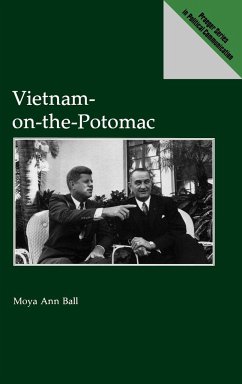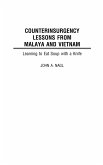This intriguing volume examines how the small group communication of Presidents Kennedy and Johnson and their key advisors influenced the decisions to escalate the war in Vietnam from January 1961 to July 1965. Using an historical-critical research method, Moya Ann Ball traces the Vietnam decisions from the combative rhetoric of Kennedy's presidential campaign through the creation of a small group communication culture in the Kennedy administration, which, sustained and reinforced in the Johnson administration, became the motivating force behind the decisions to overtly escalate the war in July 1965. Ball asserts that this small group communication culture was formed by the convergence of such characteristics as the decision-making group's assembly effect, the group's reaction to situational demands, the sharing of dramatic communication, and normative behavior. The analysis is based on primary sources (many of them declassified through the author's efforts) from the Kennedy and Johnson Libraries, and on correspondence and interviews with advisors such as McGeorge Bundy, Robert S. McNamara, Walt W. Rostow, Dean Rusk, and James C. Thomson. Contrary to current literature, Ball uncovers that: Kennedy was not the natural leader of the Vietnam decision-making group, but became the leader in death that he had not been in life; the decision-makers' communication rooted them rhetorically to a combat position from which it seemed impossible to move; Johnson stalled on overt action in Vietnam and, rather than leading his advisors, was led by them; and the decisions to escalate the war emerged in a context of discovery in the Kennedy administration and then were rationalized in a context of justification in the Johnson administration. Vietnam-on-the-Potomac will prove invaluable to communication specialists, political scientists, and historians.
Hinweis: Dieser Artikel kann nur an eine deutsche Lieferadresse ausgeliefert werden.
Hinweis: Dieser Artikel kann nur an eine deutsche Lieferadresse ausgeliefert werden.








